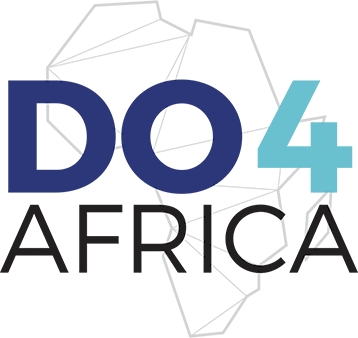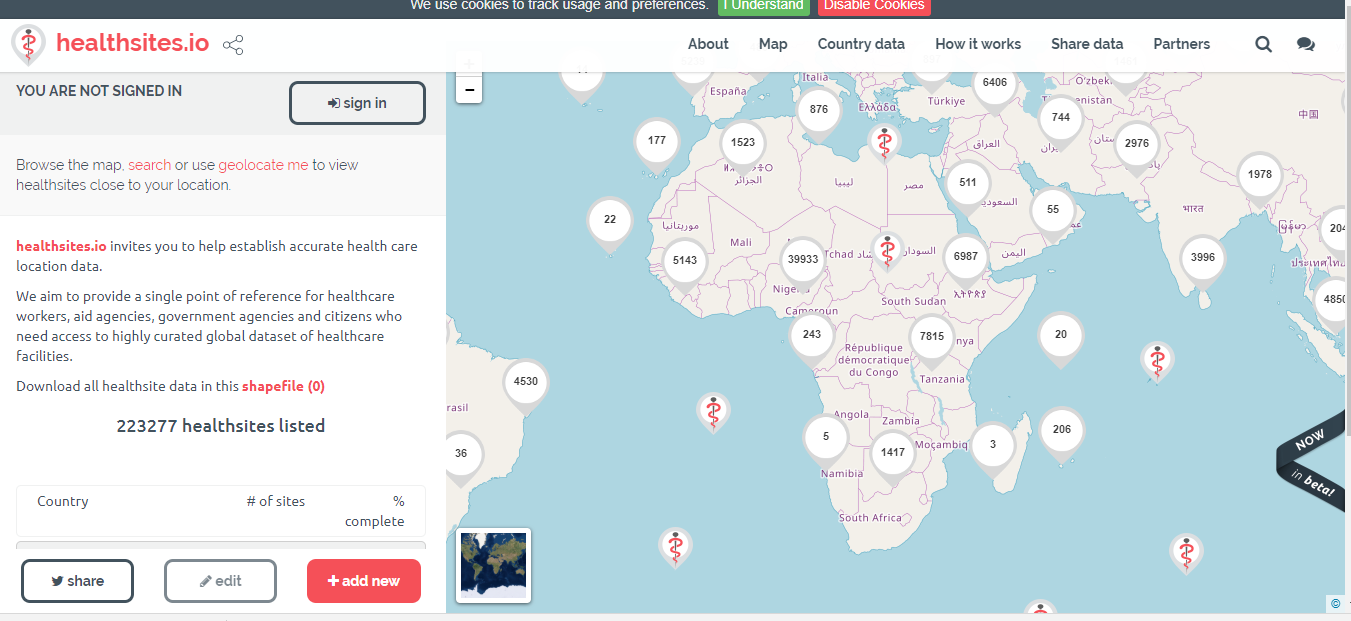From June 1st to June 3rd 2017, 22 representatives of African governments gathered for the first conference in francophone Africa about Open Data and Open Government (CAFDO2017). The very fact that this event was organized reveals the growing interest for Open Data among African leaders. We have witnessed the emergence of an Open Data Revolution and, going further, of an African Data Revolution. These marketable terms are used to refer to the new ways in which data has been used and exploited on the African continent to optimise decision-making and to support developmental needs.
The vocabulary around these issues can remain vague and obscure for some audiences.
What is Open Data? And what’s at stake in Africa?
Spotlight on : Open Data for Africa
The African Bank of Development launched an Open Data platform in 2012 named ‘Open Data For Africa’. It withholds files about the 54 African states, available for download to everyone who visits the website.
Through this portal users can access reliable, diverse and updated files and information.
The AfDB believes that this project will ‘place the continent on the forefront of the information revolution in the global scene’.
What is Open Data ?
Before anything, Open Data is a philosophy concerned with the free access to information for all. It promotes the practice of making relevant information about economy, transports, demography, public spending, digital and environmental matters available to every citizen.
This philosophy and the first open data portals emerged in the early 2010s and they are now burgeoning on the African continent. As of now, the number of tangible initiatives born from this philosophy remains relatively low due technical obstacles and political restrictions.
What’s Open Data used for?
Far from being a secondary topic exclusively restricted to a public of tech amateurs, Open Data has numerous uses which which are relevant and essential to face the great challenges of our era.
First and foremost, free access to datasets leads to a newfound “creative effervescence” indéniable : : the creation of mobile apps to fight congestion, interactive maps locating the closest health centres and the smart meters evaluating real-time energy consumption for a better management of resources are illustrations of the devices that are enabled and powered by data that was made available to all. Data becomes a raw material to acquire, transform and exploit for new purposes.

Digital Matatus is a kenyan initiative that consists in offering interactive mapping of Nairobi’s informal transport network

Healthsites references medical centers of the entire world thanks to data obtained through crowdsourcing.
For Africa, Open Data seems to be a tool for development. Open and available datasets allow the emergence of initiatives that foster wealth creation, creation of new services, apps and startups as well as an optimised management of essential services (water distribution, transport, security, health, waste management, real-time traffic monitoring). Open Data can offer more transparency regarding public spending and therefore become a tool to tackle corruption at the local levels as well as an instrument for citizen inclusion and participation.
A nascent yet promising revolution
As Kenya, Morocco, Rwanda and Burkina Faso position themselves as open data pioneers, a lot can still be done elsewhere in the continent. Trends towards the disclosure of data to the public remains unevenly adopted because of infrastructural and financial obstacles, or reluctance from decision-makers. More and more initiatives emanating from members of the civil society are however burgeoning throughout Africa.
Spotlight on: The Open Data Barometer
The Open Data Barometer measures (and promotes) the openness and the availability of data in every country. The organization publishes a yearly report ranking countries according to the quality of the data they make public (openness, exhaustiveness, etc) and drafts conclusions for the improvement of data availability around the world. The Open Data Barometer (ODB) is now one of the most influential organization in the data sector.
The 2017 ODB report pointed out a few main points:
At the global level, the data disclosed by states is generally incomplete and of poor quality.
Political will is a key factor for the development of Open Data.
Few governments release the data that can raise the citizens’ trust in their elected officials, such as budgets and public spending figures.
Even though Open Data fosters wealth creation, the poor remains excluded from these gains and projects are not focused enough on inclusion and equity.
Regarding Africa, ODB’s overview is the following: the continent’s grade remains low (14/100 for sub-saharan Africa whereas East Asia’s grade is 46/100), the governments still depend on third parties to put up their portals and there are very few datasets available for downloads. The organization still identifies leading nations in the African open data scene: Morrocco, Kenya, South Africa and Senegal.
Open Data has the potential to shift governance modes and economic models of African nations. Honest, reliable, available and legible data, even when they do not paint the brightest pictures, are still better than no data at all. The transparency that ensues from the disclosure of data as well the level for wealth creation it can represent are undeniable assets of this philosophy.
Making data public is only one step of a process. The population must be able to access the knowledge and the infrastructure to use this data. The limited internet access and the uneven electricity access are barriers to the development of Open Data in Africa.
The disclosure of public data is an iterative learning process that more and more African decision-makers seem to be interested in. The openness and the release of data can be a pillar for growth and empowerment in the upcoming years.

